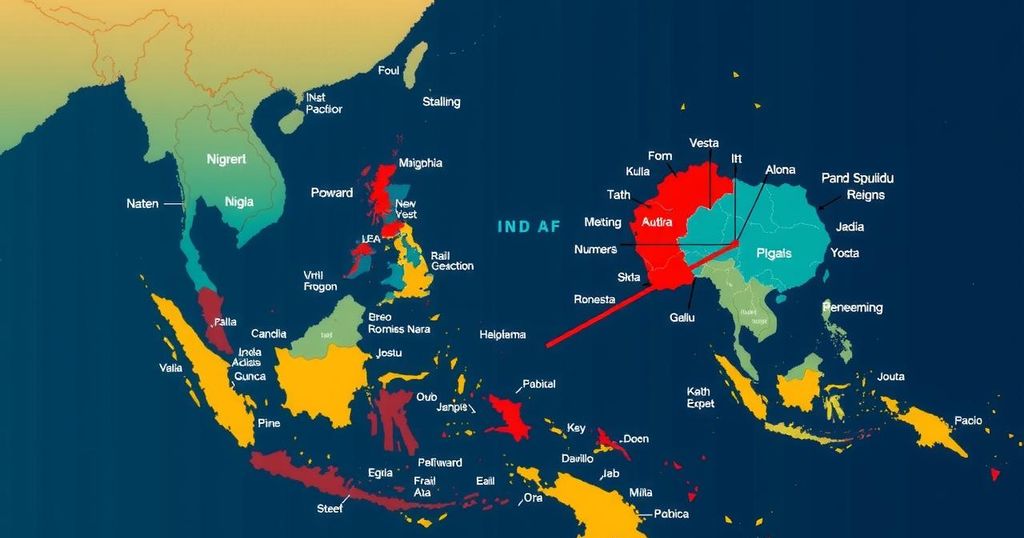U.S. Administration Raises Concerns Over Military Alliances Among Global Adversaries
The United States, under the Biden administration, is alarmed by the growing military collaboration among Russia, China, North Korea, and Iran, termed the “Axis of Anger.” These developments pose significant challenges in addressing conflicts in Ukraine and the Middle East, while efforts to halt military aid flows to Russia have taken center stage at diplomatic discussions such as the United Nations General Assembly.
The Biden administration is increasingly concerned about the burgeoning cooperative ties among Russia, China, North Korea, and Iran, which it has termed the “Axis of Anger.” This coalition, invoked by U.S. officials reminiscent of historical alliances from the World Wars and the Cold War, is perceived as a challenge to American interests and its allies. In light of ongoing conflicts, particularly in Ukraine and the Middle East, there is a heightened urgency to address the implications of these partnerships. At the recent United Nations General Assembly, U.S. representatives have emphasized the need to curb military support from North Korea and Iran to Russia, highlighting how China is also contributing to Russia’s military capabilities amid its invasion of Ukraine. Secretary of State Antony J. Blinken articulated that halting the flow of arms, such as ballistic missiles and drones, is a critical priority for the Security Council. These initiatives come against a backdrop of escalating tensions with significant geopolitical ramifications, raising alarms about Iran’s potential retaliatory actions against Israel following the recent death of a Hezbollah leader and ongoing military engagements.
This article discusses the strategic relations between key adversarial nations and how they threaten U.S. foreign policy objectives. The current global dynamics reflect a resurgence of conflict similarities to historical events, where nations align for heightened military cooperation. The Biden administration’s focus is primarily on the defense of international partners and stabilizing geopolitical hotspots, notably Taiwan amidst threats from China, as well as managing the impacts of warfare in Ukraine and the Middle East.
In summary, the evolving military cooperation between Russia, China, North Korea, and Iran represents a significant strategic concern for the United States and its allies. The Biden administration’s response involves diplomatic measures aimed at severing military support channels. With current conflicts escalating, it remains vital for U.S. officials to navigate these relationships carefully to uphold global stability and protect international allies.
Original Source: www.nytimes.com








Post Comment